| Voice/Instrument: | Countertenor |
Biography
Andreas Scholl (born 10 November 1967) is a German countertenor, a male classical singer in the alto vocal range. He specialises in Baroque music. His range is the same as that of the celebrated 18th century alto castrato, Senesino, for whom Handel wrote his greatest alto roles. Fanfare Magazine says: "There are more excellent countertenors before the public today than ever before, but one stands out above all others, as Caruso among tenors a century ago: Andreas Scholl". In 2005, Scholl became the first countertenor (and the first German) to appear as a solo performer at The Last Night of the Proms in London.
Scholl was born on 10 November 1967 in Eltville, Germany, and grew up in neighboring Kiedrich. All of his family members were singers. He was enrolled at the age of seven into the Kiedricher Chorbuben (Kiedrich Choir-Boys) — which was first documented in 1333 as "a schola of men assisting the priests on all Sundays, singing the Gregorian chants." At age 13, Andreas Scholl sang the second boy (his sister sang first boy) in Mozart's Die Zauberflöte at the Wiesbaden Staatstheater. That same year, he was one of 20,000 choristers from all over the world gathered in Rome for a festival where Scholl was chosen to sing solo at Mass on 4 January 1981 and met Pope John Paul II. Along with his fellow choristers, Andreas Scholl was an extra in the film The Name of the Rose, playing a young monk standing alongside Sean Connery in scenes shot at Eberbach Abbey, near Kiedrich.
Scholl was 17 when the extent of his ability was recognized by the Chorbuben's voice coach from the Darmstadt Music Academy. He then sang for the tenor/countertenor Herbert Klein, who advised him that there were only two places he should study: either in London or at the early music conservatoire in Basel, the Schola Cantorum Basiliensis. Since an uncle had introduced Scholl to the voices of Paul Esswood and James Bowman, the leading European countertenors of the day, Scholl chose Bowman as a role model. Scholl sent a demo tape to René Jacobs to evaluate his talent. This resulted in Jacobs inviting Scholl to visit the Schola Cantorum Basiliensis. However, Scholl could not read music and had no first degree. Although the Schola Cantorum Basiliensis only offered post-graduate courses, Scholl was subsequently offered admission on the strength and quality of his voice after singing a Schubert song for the admissions board — which included René Jacobs.
At the Schola, Andreas Scholl's teacher was Richard Levitt, followed by Jacobs in his second year. Violinist Chiara Banchini and soprano Emma Kirkby were major influences, as Scholl began to specialise in the music of the Baroque. Scholl additionally studied with soprano Evelyn Tubb and lutenist Anthony Rooley. In addition to the Diploma of Ancient Music, for which his external examiner was James Bowman, Andreas Scholl garnered prizes from the Council of Europe and the Foundation Claude Nicolas Ledoux, and awards from Switzerland's Association Migros and Ernst Göhner Foundation.
Andreas Scholl now teaches interpretation in the Schola Cantorum Basiliensis, succeeding his own teacher, Richard Levitt, and is in much demand for master classes.
In 1993, Scholl stood in for René Jacobs at Jacobs' request at the Théâtre Grévin in Paris, causing a sensation. This St John Passion was broadcast on Good Friday to a radio audience that included William Christie. Shortly thereafter, Christie and Scholl met on a train. The 1994 recording of Handel's Messiah with Les Arts Florissants resulted directly from this meeting.
The bulk of Scholl's recording career has been with Harmonia Mundi and Decca. By 1998 his CDs dominated Harmonia Mundi's hit list at numbers one, three, four, five and ten, and they are still among Harmonia Mundi's best sellers. His discography amounts to more than sixty CDs, all but two being music of the European Baroque or Renaissance. Recordings in which he has collaborated, including all but one of his solo recordings, have won awards. His personal accolades include the Diapason d'Or, multiple Gramophone Awards, 10 de Repertoire, ffff Telerama and Choc du Mond de la Musique, the ECHO award and Prix de l'Union de la Presse Musicale Belge. In an extremely rare departure from its normally austere approach, Fanfare magazine described his recording of Dowland's A Musicall Banquet as 'perfect'. The recording of Bach's St. John Passion conducted by Philippe Herreweghe on which Andreas Scholl sings was nominated for a Cannes Classical Award in 2003. He was Germany's Kultur Radio Artist of the Year in 1998. He has revealed, to German audiences in particular, some little-known masterworks of German Baroque composers and has thereby made a significant contribution to the modern rediscovery of the Baroque repertoire. His 2001 album of folk songs, Wayfaring Stranger, was a personal project, well-received by the CD-buying public but not universally acclaimed by his fellow musicians, some of whom regarded it as an inappropriate departure.
Andreas Scholl has worked with the majority of contemporary Baroque specialists, including Chiara Banchini, William Christie, Christophe Coin, Michel Corboz, Paul Dyer, John Eliot Gardiner, Reinhardt Goebel, Philippe Herreweghe, Christopher Hogwood, René Jacobs, Konrad Junghänel, Robert King, Ton Koopman, Paul McCreesh, Nicholas McGegan, Roger Norrington, Christophe Rousset, Jos van Veldhoven, Dominique Veillard and Roland Wilson. His regular solo partners include cemballist Markus Märkl and the virtuoso lutenist Edin Karamazov. Ensembles with whom he performs include the Netherlands Bach Choir, Cantus Coelln, the Orchestra of the Age of Enlightenment, Musica Antiqua Köln, the Berlin Akademie für Alte Musik, the Freiburg Barockorchester, the Australian Brandenburg Orchestra and Accademia Bizantina.
The composer Marco Rosano has created a new Stabat Mater for Andreas Scholl; he sang the first complete performance of this work on 22 February 2008 at the City Recital Hall, Angel Place, Sydney, accompanied by the Australian Brandenburg Orchestra under Paul Dyer.
Scholl describes himself as a singer who does opera. His major roles have been those written for the 18th century alto castrato Senesino: Bertarido in Handel's Rodelinda (Glyndebourne, 1998, 1999, 2002 as well as The Metropolitan Opera, 2006 and planned 2011) and the title role in Handel's Giulio Cesare in the Royal Danish Opera production (2002, 2005). Rodelinda was a huge success and he 'stopped the show' (Sunday Times). According to James Bowman, who describes himself as an unqualified admirer, 'people went into a kind of trance' when he sang Dove Sei. The Financial Times said of his Vivi tiranno: '… such intelligent virtuosity … time stands still and you feel he is speaking to you.' In February 2002, Le Monde called him 'Le Roi Scholl' after his reprise of the role of King Bertarido in the Paris production of the Glyndebourne Rodelinda. He reprised his Giulio Cesare in Paris (2007) and Lausanne (2008). He sang the role of Arsace in Handel's Partenope for the Royal Danish Opera in 2008.
Scholl has always written songs as well as music for ballet and theatre and has his own professional sound studio in Basel, Switzerland, where he now resides. His White as Lilies, based on ideas of John Dowland, is on the 1995 CD The Countertenors (with Dominique Visse and Pascal Bertin). It was a hit in Korea when used in a TV commercial and was later released there in an orchestrated version. In December 2003, he gave his first public performance in popular music, an eclectic programme of electronic and orchestral works which included his own compositions. Alongside Andreas Scholl was fellow Baroque countertenor, Roland Kunz, who specialises in setting Elizabethan English poems to his own electronic music. The two countertenors duetted in Scholl's and Kunz's songs, backed by Kunz's band die Unerlösten and the Rundfunk-Sinfonieorchester Saarbrücken under Rick Stengårds.

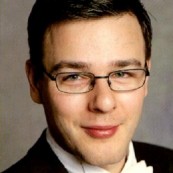
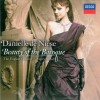
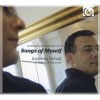
![Rosano - Stabat Mater [Andreas Scholl]](http://static.classicalm.com/repository/disk-cover/small/7416-img1468223435634930.jpg)
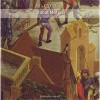
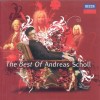
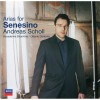

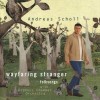
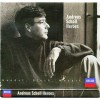
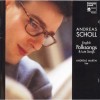
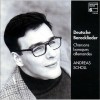
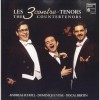
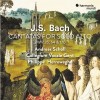
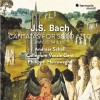
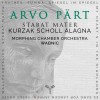
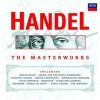
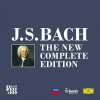
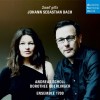
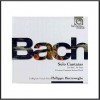
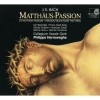
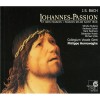
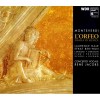
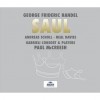
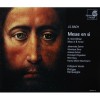
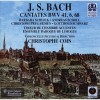
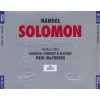
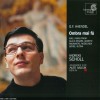
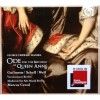
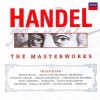
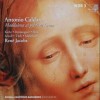
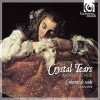
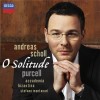
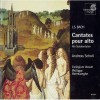
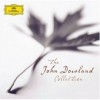
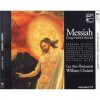
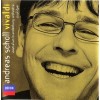
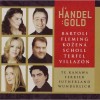
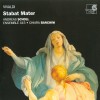
![Bach - Weihnachts-Oratorium, BWV 248 [Jacobs]](http://static.classicalm.com/repository/composition-cover/small/18998-img1394132506633151.jpg)
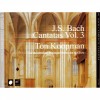
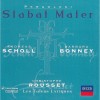
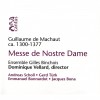
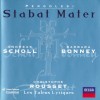
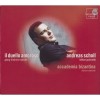
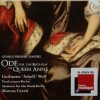
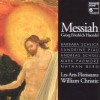
![The Opera Album 2011. [CD 1 of 2]](http://static.classicalm.com/repository/collection-cover/small/1344-img1369919954895586.jpg)
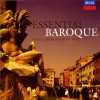
![Baroque Adagios [CD 1 of 2]](http://static.classicalm.com/repository/collection-cover/small/1324-img1362233059780943.jpg)
![Baroque Adagios [CD 2 of 2]](http://static.classicalm.com/repository/collection-cover/small/1325-img1362237166532140.jpg)